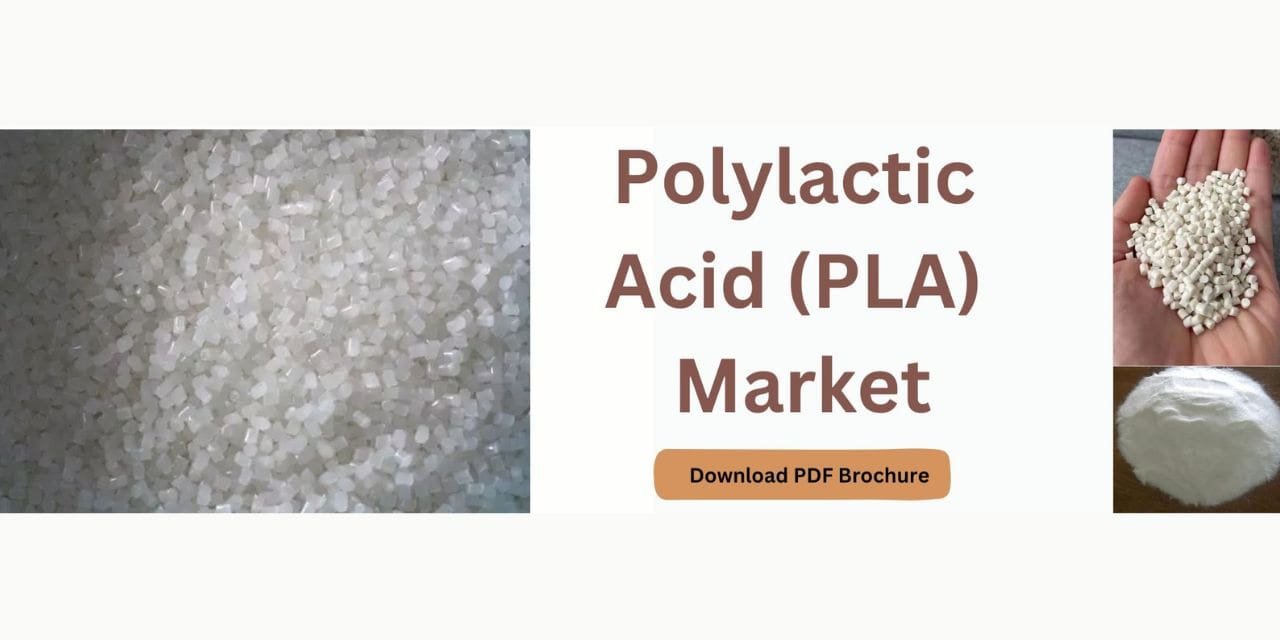The report “Poly Lactic Acid Market by Grade (Thermoforming, Extrusion, Injection Molding, Blow Molding), Application (Rigid Thermoform), End-use Industry (Packaging, Consumer Goods, Agricultural, Textile, Biomedical) & Region – Global Forecast to 2028″, The PLA market is projected to reach USD 3.3 billion by 2028, at a CAGR of 17.1% from USD 1.5 billion in 2023. The PLA market is mainly driven by the increase in consumer awareness and growing demand in end-use industries like packaging, consumer goods, agriculture, biomedical, textiles among other industries. Moreover, it is also driven by the rapidly developing market in the Asia Pacific region.
Browse
• 235 Market data Tables
• 48 Figures
• 242 Pages and in-depth TOC on “Polylactic Acid Market – Global Forecast to 2028″
Some of the prominent key players are:
- Natureworks LLC (US)
- Total Corbion PLA (Netherlands)
- BASF SE (Germany)
- Cofco (China)
- Futerro (Belgium)
- Danimer Scientific (US)
- Toray Industries Inc. (Japan)
- Evonik Industries (Germany)
- Mitsubishi Chemical Corporation (Japan)
- Unitika Ltd. (Japan)
Opportunities: Multi Functionalities of PLA
PLA can be modified and customized to exhibit a wide range of properties, including flexibility, strength, heat resistance, and barrier properties. This versatility allows PLA to cater to diverse application needs across industries such as packaging, textiles, medical devices, and automotive. The ability to tailor PLA's characteristics to specific requirements provides an opportunity for manufacturers to develop innovative and high-value products. Additionally, PLA's biodegradability and renewable nature further enhance its usage in sustainable solutions. The multi functionalities of PLA position it as a promising material with a growing market potential.
Thermoforming grade is expected to lead the PLA market during the forecast period, in terms of value.
Thermoforming grade PLA is in high demand in the PLA market due to its exceptional characteristics that make it well-suited for thermoforming processes. Thermoforming involves heating a plastic sheet and molding it into desired shapes. PLA’s thermoforming grade offers excellent heat resistance, dimensional stability, and clarity, making it ideal for packaging, disposable food containers, and consumer products. Its transparency allows for appealing product displays, while its ability to maintain shape and withstand elevated temperatures ensures durability. Moreover, PLA’s biodegradability and renewable nature align with consumer preferences for eco-friendly packaging solutions, further driving the demand for thermoforming grade PLA.
Asia Pacific is expected to be the fastest growing market for PLA during the forecast period, in terms of value.
Asia Pacific is expected to be the fastest growing market for PLA due to several key factors. The region’s strong industrial and manufacturing sectors, particularly in countries like China, Japan, and South Korea, are driving the demand for PLA across diverse applications such as packaging, textiles, and automotive. Moreover, the region’s large population, coupled with a growing middle class, is leading to increased consumption of packaged goods and disposable products, thereby fueling the demand for PLA-based packaging materials. Additionally, governments in the Asia Pacific region are implementing favorable policies to promote eco-friendly materials and reduce plastic waste, which is further driving the adoption of PLA and contributing to its rapid market growth.

